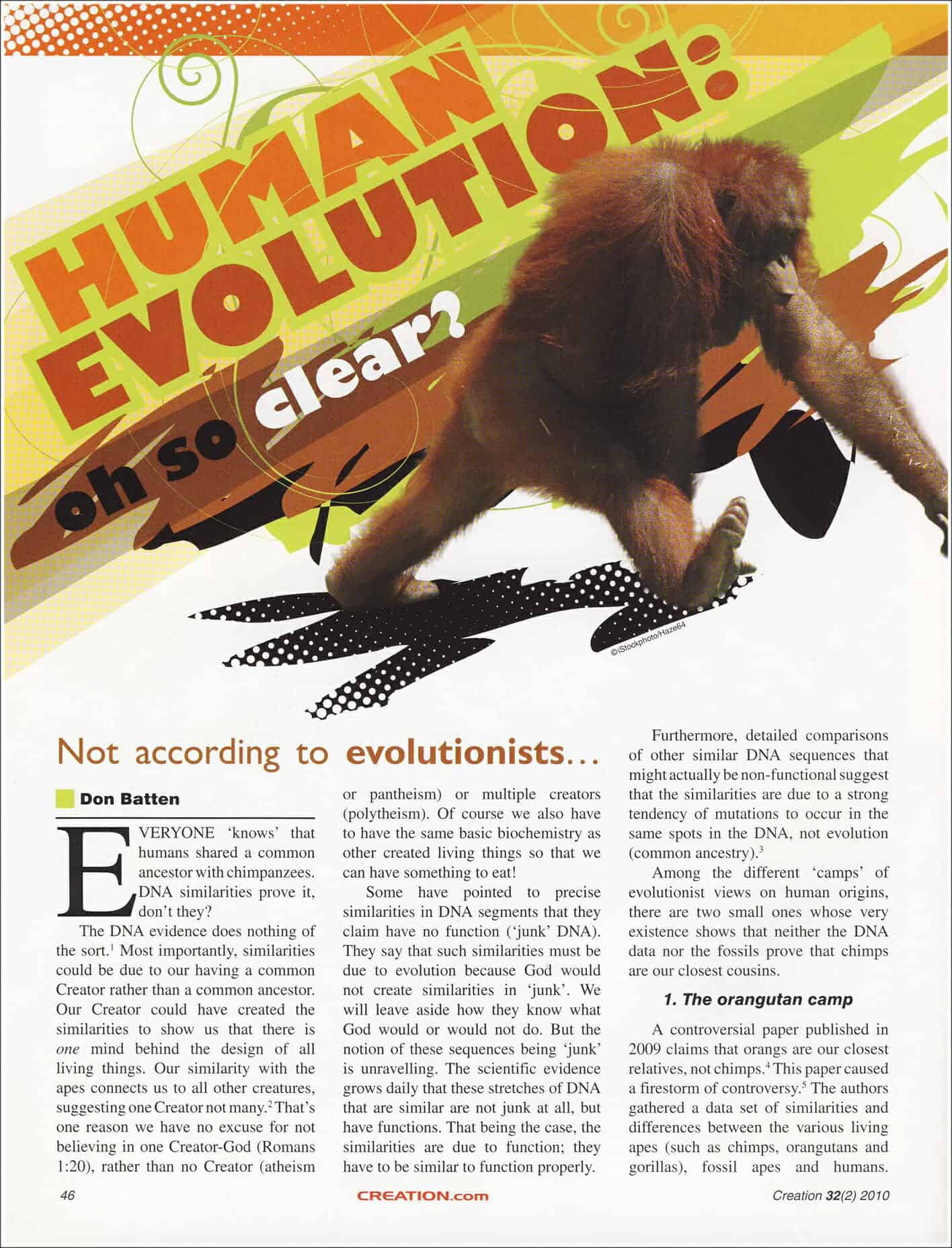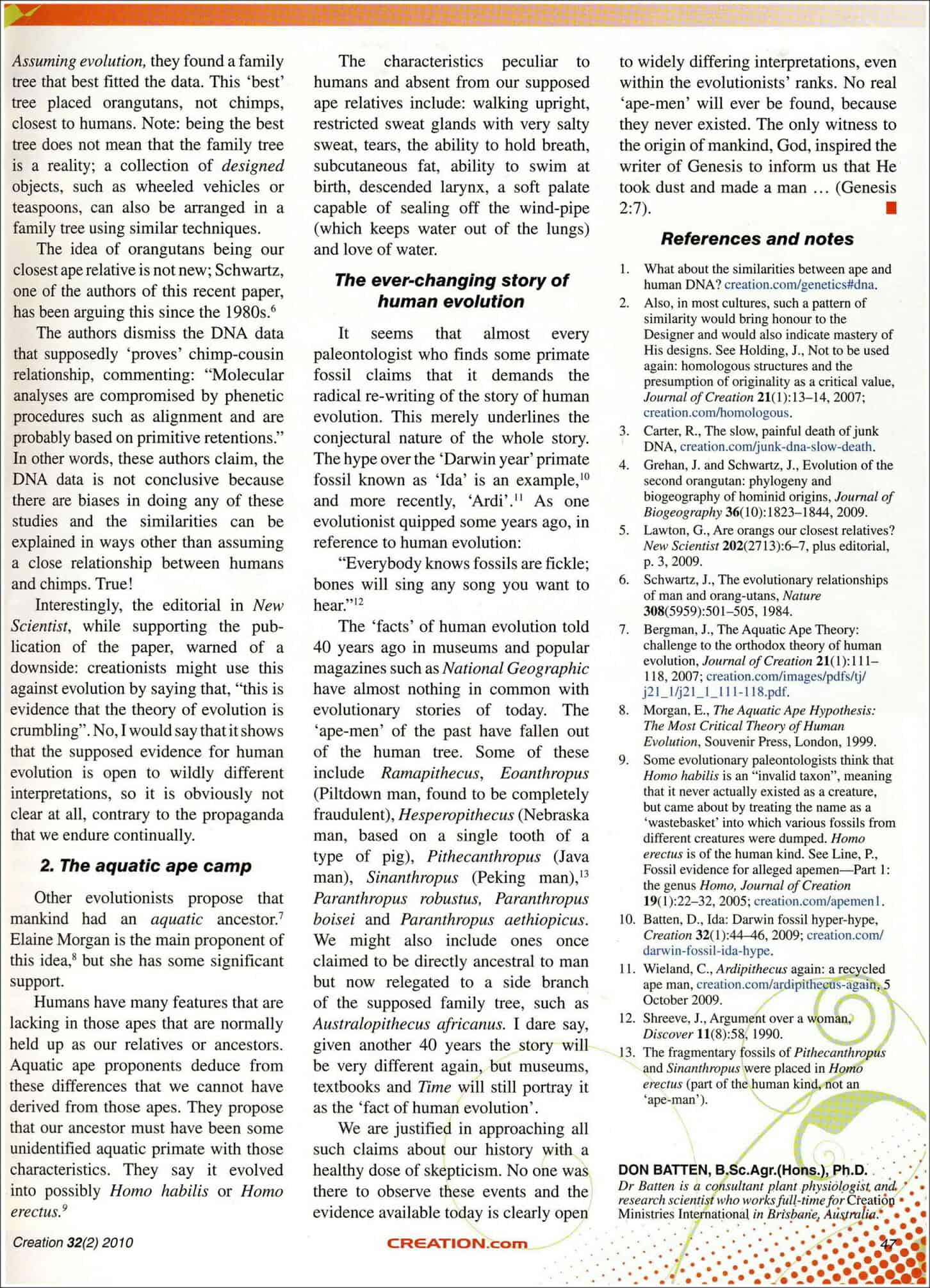Creation vs. Evolution

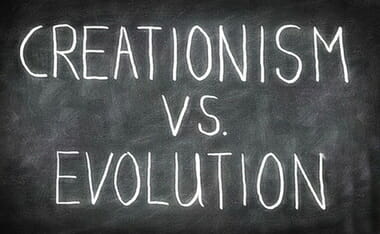
ESPN Broadcaster Dave Pasch Doesn’t Believe In Evolution (*Awesome*)
The Blaze reports the following:
When sportscaster Bill Walton gave fellow ESPN broadcaster Dave Pasch a cake along with a copy of Charles Darwin’s “The Origin of Species” on the air this week to celebrate Pasch’s recent Arizona Sportscaster of the Year award, the recipient offered up a pointed response to the gift: he doesn’t believe in evolution.
“Here we’ve got ‘The Origin of Species’ by Charles Darwin,” Walton said, handing Pasch the book. “We want to make sure that you believe in evolution.”
Pasch was quick to respond, “I don’t, but I’ll set this over here,” telling Walton that he has a book that counters the arguments presented in “The Origin of Species” and that he would be happy to bring it along with him to the next basketball game.
After some additional banter, Pasch added that perhaps the two could discuss “irreducible complexity” so that he could “straighten [Walton] out.”…

Heliocentrism vs. Geocentrism ~ Can Both Right? Dr. Stokes Explains
(Video Description) “How To Be a Real Skeptic” ~ Mitch Stokes, PhD. Mitch Stokes, professor at New Saint Andrews College, gives a talk on skepticism at Collegiate Reformed Fellowship’s weekly meeting.
Can there be dueling theories for the same observable evidence? Can BOTH be true? In this smaller portion of his larger talk (http://tinyurl.com/jwm3lcd), Dr. Stokes explains with a story of two theories that at the time were equally true.
Dr. Stokes book, “A Shot of Faith {To The Head}” — Can be found here: http://tinyurl.com/pmmx9rh
BTW: This fuller presentation is applicable not only to religious, or origin type debates, but especially to the current flap over global warming, or climate change… or, er… climate disruption. Whatever its called.
Often times one’s bias, worldview, and presuppositions drive outcomes. It is natural, we all do it. Read more in my first chapter: http://www.scribd.com/doc/34407776/Introduction-Technology-Junkies
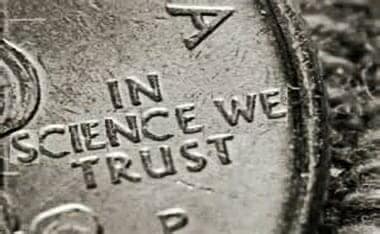
“Let There Be Light!” ~ Concepts (Points of Departure)
Opinions are bountiful, testing one’s opinions in today’s age? Not so much.
I will explain the issues I have with John’s latest article, and as usual, you can click it to enlarge the above. In this latest opinion slurry, John asks questions that I doubt he even has one single book by a leading philosopher/theologian/scientist from either the Intelligent Design camp or creation positions to search for how Christianity answers these questions. For instance, my favorite treatise to introduce people to ideas expressed above in a broad sense, “Unshakable Foundations: Contemporary Answers to Crucial Questions about the Christian Faith.” Or a more in-depth treatise of the same, “I Don’t Have Enough Faith to Be an Atheist.” Or one more specific to his questions, “The Case For A Creator: A Journalist Investigates Scientific Evidence That Points Toward God.” All are readable, and all answer his questions in a way that a mature seeker to these answers would do if seeking to inform one’s own opinion.
One of the queries proffered above is this one: “Of course, that interpretation invites the question, who or what created God.” I wonder if John has actually spent the time finding an answer to this position that has surely passed his lip many times in conversation. I do have a POWER POINT that deals with this in a very layman-like manner. Also, a more in-depth treatise of it as well HERE. But in a short conversation I had with another gentleman, I responded briefly this way — showing that this has been squarely dealt with many hundreds of years ago:
Tim, you asked:
“What created God? Who created the thing that created the thing that created the thing that created God? It’s an infinite regression.”
Again, “What created God.”
You are basically saying that:
“if everything needs a cause, then so does God, in which case he would not be God. And if God does not need a cause, then neither does the world. But if the world needs no cause then there is no God. Hence, whether everything needs a cause or does not need a cause, there is no God.”
Did I sum up the “gist” of the matter? (Who made God, in other words.)
The criticism, “if everything needs a cause, then there must be an infinite regress” is built on a misconception of the principle of causality. Or better, it is a confusion of the principle of existential causality and the principle of sufficient reason. The latter affirms that everything needs a cause.
That it would seem, as atheists observe, leads to a contradiction of God being his own cause.
Aquinas dealt with this long ago. He held that only finite, changing, dependent beings need a cause. This does not lead to a contradictory self-caused being but to a non-contradictory un-caused Being. For if only finite beings need a cause then one arrives at a nonfinite (i.e. infinite) being that does not need a cause. Hence, from Aquinas’ principle of causality the series would legitimately stop at the first, un-caused Cause of all finite beings.
If one is confused in regards to the above: here is a response geared towards 5th grader; and one geared towards adults. John’s article[s] surely exemplify philosopher Mortimer Adler’s point about formulating good questions based on coherent starting point:
Mortimer J. Adler rightly points out that while many Christians are quick in responding to the conclusions in an argument often times the Christian is unaware that the point of departure is not in the conclusion, but in the starting premise, the foundational assumptions.
Norman L. Geisler & Peter Bocchino, Unshakeable Foundations: Contemporary Answers to Crucial Questions About the Christian Faith (Minneapolis: Bethany House, 2001), 20-21.
This “point of departure” is answered two separate times by Christian philosopher Dr. William Lane Craig ~ in less than 2-minutes in each case. I mention the time factor because it seems Mr. Huizum hasn’t even taken 2-minutes to get an answer to his “point of departure”:
WILLIAM LANE CRAIG: Who Made God
John states that searching for answers to his questions in the article is “vital” in “‘knowing’ the truth.” That is fine, and he is right, it is an important question that from the Greeks to us has been a grand Western tradition. But even 1,000’s of years ago the Greeks thought it important enough to debate “how” even to ask the question properly. All that aside however, my last point that needs to be made in one that undermines John’s presuppositions. In John’s closing statement, he says this:
If science is right, there is no need for the existence of a supernatural being, which would in turn terminate all religions on earth and consequently a lot of insane wars.
In a previous installment I respond to John also writing that “Atheism has been aided by scientific discoveries and rigorous questioning.” In the much longer response I quote two agnostics as saying this;
✪ “The essential element in the astronomical and biblical accounts of Genesis is the same; the chain of events leading to man commenced suddenly and sharply, at a definite moment in time, in a flash of light and energy…. The Hubble Law is one of the great discoveries in science; it is one of the main supports of the scientific story of Genesis.”
~ Robert Jastrow: American astronomer and physicist. Founding director of NASA’s Goddard Institute for Space Studies, he is the director of the Mount Wilson Institute and Hale Solar Laboratory. He is also the author of Red Giants and White Dwarfs (1967) and God and the Astronomers (2nd ed., 2000).
✪ “Certainly there was something that set it all off. Certainly, if you are religious, I can’t think of a better theory of the origin of the universe to match with Genesis.”
~ Robert Wilson: is an American astronomer, 1978 Nobel laureate in physics, who with Arno Allan Penzias discovered in 1964 the cosmic microwave background radiation (CMB)…. While working on a new type of antenna at Bell Labs in Holmdel Township, New Jersey, they found a source of noise in the atmosphere that they could not explain. After removing all potential sources of noise, including pigeon droppings on the antenna, the noise was finally identified as CMB, which served as important corroboration of the Big Bang theory.
So John seems to be making the same misguided statements, maybe based on his misunderstanding of the weight of the logical conclusions found in a “non-God” universe, where truth cannot be known. Or not spending 2-minutes to see where his starting premise may be errant, and so his conclusions even worse. In other words, questions seeking a truthful response or statement of fact are impossible considering Johns epistemology (“the branch of philosophy concerned with questions about knowledge and belief and related issues such as justification and truth”).
To which I end with a call for John to internalize if he can even ask what he has in this column and others and expect to find an answer to his “probing” [sophomoric] questions:
Even Darwin had some misgivings about the reliability of human beliefs. He wrote, “With me the horrid doubt always arises whether the convictions of man’s mind, which has been developed from the mind of lower animals, are of any value or at all trustworthy. Would any one trust in the convictions of a monkey’s mind, if there are any convictions in such a mind?”
Given unguided evolution, “Darwin’s Doubt” is a reasonable one. Even given unguided or blind evolution, it’s difficult to say how probable it is that creatures—even creatures like us—would ever develop true beliefs. In other words, given the blindness of evolution, and that its ultimate “goal” is merely the survival of the organism (or simply the propagation of its genetic code), a good case can be made that atheists find themselves in a situation very similar to Hume’s.
The Nobel Laureate and physicist Eugene Wigner echoed this sentiment: “Certainly it is hard to believe that our reasoning power was brought, by Darwin’s process of natural selection, to the perfection which it seems to possess.” That is, atheists have a reason to doubt whether evolution would result in cognitive faculties that produce mostly true beliefs. And if so, then they have reason to withhold judgment on the reliability of their cognitive faculties. Like before, as in the case of Humean agnostics, this ignorance would, if atheists are consistent, spread to all of their other beliefs, including atheism and evolution. That is, because there’s no telling whether unguided evolution would fashion our cognitive faculties to produce mostly true beliefs, atheists who believe the standard evolutionary story must reserve judgment about whether any of their beliefs produced by these faculties are true. This includes the belief in the evolutionary story. Believing in unguided evolution comes built in with its very own reason not to believe it.
This will be an unwelcome surprise for atheists. To make things worse, this news comes after the heady intellectual satisfaction that Dawkins claims evolution provided for thoughtful unbelievers. The very story that promised to save atheists from Hume’s agnostic predicament has the same depressing ending.
It’s obviously difficult for us to imagine what the world would be like in such a case where we have the beliefs that we do and yet very few of them are true. This is, in part, because we strongly believe that our beliefs are true (presumably not all of them are, since to err is human—if we knew which of our beliefs were false, they would no longer be our beliefs).
Suppose you’re not convinced that we could survive without reliable belief-forming capabilities, without mostly true beliefs. Then, according to Plantinga, you have all the fixins for a nice argument in favor of God’s existence For perhaps you also think that—given evolution plus atheism—the probability is pretty low that we’d have faculties that produced mostly true beliefs. In other words, your view isn’t “who knows?” On the contrary, you think it’s unlikely that blind evolution has the skill set for manufacturing reliable cognitive mechanisms. And perhaps, like most of us, you think that we actually have reliable cognitive faculties and so actually have mostly true beliefs. If so, then you would be reasonable to conclude that atheism is pretty unlikely. Your argument, then, would go something like this: if atheism is true, then it’s unlikely that most of our beliefs are true; but most of our beliefs are true, therefore atheism is probably false.
Notice something else. The atheist naturally thinks that our belief in God is false. That’s just what atheists do. Nevertheless, most human beings have believed in a god of some sort, or at least in a supernatural realm. But suppose, for argument’s sake, that this widespread belief really is false, and that it merely provides survival benefits for humans, a coping mechanism of sorts. If so, then we would have additional evidence—on the atheist’s own terms—that evolution is more interested in useful beliefs than in true ones. Or, alternatively, if evolution really is concerned with true beliefs, then maybe the widespread belief in God would be a kind of “evolutionary” evidence for his existence.
You’ve got to wonder.
Mitch Stokes, A Shot of Faith (to the Head): Be a Confident Believer in an Age of Cranky Atheists (Nashville, TN: Thomas Nelson, 2012), 44-45.

“[Current] Creationist Contributions to Science” ~ Dr. Don Batten
A few examples of current men of science who are young earth creationists:
- Professor Dr Bernard Brandstater—pioneer in anesthetics. Amongst many other achievements, he pioneered assisted breathing for premature babies with prolonged incubation and developed an improved catheter for epidural anesthesia, both adopted around the world.
- Prof. Stuart Burgess—a world expert in biomimetics (imitating design in nature). He is Professor of Engineering Design, Department of Mechanical Engineering, University of Bristol (UK) and leads the Design Engineering Research Group at the university. Dr Burgess is the author of over 40 papers published in science journals, and another 50 conference proceedings. He has also registered 7 patents and has received various awards, the Wessex Institute Scientific Medal being the most recent.
- Professor Dr Ben Carson—pioneer pediatric neurosurgeon. He was long-term director of pediatric neurosurgery at the Johns Hopkins Medical Institutions. He was the first surgeon to successfully separate conjoined twins joined at the head and also pioneered surgery to cure epilepsy in young children, and much else. He has been awarded 51 honorary doctorates, including from Yale and Columbia universities in recognition of his outstanding achievements. He is a member of the Alpha Honor Medical Society, the Horatio Alger Society of Distinguished Americans, and sits on numerous business and education boards. In 2001, CNN and Time magazine named Ben Carson as one of the nation’s 20 foremost physicians and scientists. In that same year, the Library of Congress selected him as one of 89 ‘Living Legends’. In February 2008, President Bush awarded Carson the Ford’s Theater Lincoln Medal and the Presidential Medal of Freedom, the USA’s highest civilian honors.

- Dr Raymond Damadian—largely responsible for developing medical imaging using magnetic resonance (MRI). He has been honored with the United States’ National Medal of Technology, the Lincoln-Edison Medal, and induction into the National Inventors Hall of Fame alongside Thomas Edison, Alexander Graham Bell and the Wright brothers. In 2001 the Lemelson-MIT program bestowed its lifetime achievement award on Dr Damadian as “the man who invented the MRI scanner”. It is commonly recognized that he was discriminated against in not at least sharing a Nobel Prize for his work (two others shared the award), although Damadian was the discoverer that diseased tissue would have a different signal from healthy.’
- Dr John Hartnett—developed the world’s most precise atomic clocks, which are used in research and industry around the globe. He is an Australian Research Council (ARC) Discovery Outstanding Researcher Award (DORA) fellow at the University of Adelaide, where he is an Associate Professor. In his relatively short career, he has published more than 200 papers in scientific journals, book chapters, and conference proceedings.
- Dr Raymond Jones—solved the major problem of the indigestibility of Leucaena (a tropical legume) for grazing cattle in Australia, among other achievements. This research has contributed hundreds of millions of dollars to the Australian beef industry. He was honored with the CSIRO Gold Medal for Research Excellence, and the Urrbrae Award.
- Dr Felix Konotey-Ahulu—many pioneering contributions, especially in sickle cell disease management. He is Kwegyir Aggrey Distinguished Professor of Human Genetics, University of Cape Coast, Ghana, and Consultant Physician Genetic Counsellor in Sickle Cell and Other Haemoglobinopathies, Phoenix Hospital Group, London, UK. Ironically, sickle cell disease is often incorrectly held up as a ‘proof of evolution’ in science textbooks. Dr Konotey-Ahulu has received many awards in recognition of his work.
- Dr John Sanford—has been granted over 30 patents arising from his research in plant breeding and genetics. His most significant scientific contributions involve three inventions, the biolistic (`gene gun’) process, pathogen-derived resistance, and genetic immunization. A large fraction of the transgenic crops (in terms of both numbers and area planted) grown in the world today were genetically engineered using the gene gun technology developed by John and his collaborators. Dr Sanford was honoured with the Distinguished Inventor Award by the Central New York Patent Law Association in 1990 and 1995)
- Dr Wally (Siang Hwa) Tow—groundbreaking research in ‘molar pregnancy’, a poverty-related disease. He was invited to lecture in some fourteen top Obstetrics-Gynaecology departments in America in 1962-3, including leading universities such as Harvard, Johns Hopkins, Columbia, New York, UCLA, Cornell, and Stanford. He was awarded the William Blair Bell Lectureship by the RCOG in recognition of the importance of this work. He served as Professor and Chairman of the Department of Obstetrics and Gynaecology, National University of Singapore.
Don Batten, “Creationist Contributions to Science,” Creation 36(4):1 September 2014, 17-18. See also, creation bios.

Richard Dawkins Espouses The Value of Life via Evolutionary Values
I say often that the ONLY ethic — or moral — in evolutionary naturalism is this: “survival of the fittest.” Dawkins has previously said this:
- “What’s to prevent us from saying Hitler wasn’t right? I mean, that is a genuinely difficult question.”
What he is really saying is that it is not hard to support the Nazi’s pushing the invalid and Down’s patients off of third story hospital balconies… but it is hard to call THIS an absolute moral wrong.
WHY?
BECAUSE survival of the fittest IS the ethic to achieve. If rape helps the species survive, it’s awesome! (From a chapter via my book):
…sexual acts are something from our evolutionary past and advantageous;[46] rape is said to not be a pathology but an evolutionary adaptation – a strategy for maximizing reproductive success.[47]….
[….]
The first concept that one must understand is that these authors do not view nature alone as imposing a moral “oughtness” into the situation of survival of the fittest. They view rape, for instance, in its historical evolutionary context as neither right nor wrong ethically.[49] Rape, is neither moral nor immoral vis-à-vis evolutionary lines of thought, even if ingrained in us from our evolutionary paths of survival.[50] Did you catch that? Even if a rape occurs today, it is neither moral nor immoral, it is merely currently taboo.[51] The biological, amoral, justification of rape is made often times as a survival mechanism bringing up the net “survival status” of a species, usually fraught with examples of homosexual worms, lesbian seagulls, and the like.[52]
[46] Remember, the created order has been rejected in the Roman society as it is today. This leaves us with an Epicurean view of nature, which today is philosophical naturalism expressed in the modern evolutionary theories such as neo-Darwinism and Punctuated Equilibrium.
[47] Randy Thornhill and Craig T. Palmer, A Natural History of Rape: Biological Bases of Sexual Coercion (Cambridge: MIT Press, 2000), 71, 163. See also: Dale Peterson and Richard Wrangham, Demonic Males: Apes and the Origins of Human Violence (New York, NY: Houghton Mifflin Harcourt Publishing, 1997).
[49] Nancy Pearcy, Total Truth: Liberating Christianity from Its Cultural Captivity (Wheaton: Crossway Books, 2004), 208-209.
[50] Steven Pinker, The Blank Slate: The Modern Denial of Human Nature (New York: Penguin, 2002), 162-163.
[51] Norman L. Geisler and Frank Turek, I Don’t Have Enough Faith to be an Atheist (Wheaton: Crossway Books, 2004), 176-180.
[52] Daniel C. Dennett, Darwin’s Dangerous Idea: Evolution and the Meaning of Life (New York: Touchstone Book, 1995), 492.
Some of the responses, via Twitchy, were wonderful!







Population Studies ~ Biblical vs Evolutionary Data
A partial excerpt from Creation.com:
….Population growth is increasing currently at a rate of approximately 1.8% per annum (World Book Encyclopaedia), or doubling every 39 years. Even if the average time that the population doubled in the past was as slow as once every thousand years (that is one twenty-fifth of the present growth rate), this would put the first pair of humans on Earth only 31,500 years ago. Some people, not willing to believe that mankind was created only a few thousand years ago, claim that the world’s population has been almost wiped out many times. Clearly it has never been wiped out entirely. While some people will assert that the human population has been almost wiped out a number of times, without their providing any evidence to back it up, these same people get very agitated if we suggest that the population was nearly wiped out once by a great Flood in the time of Noah. The world’s population was approximately 600 million in the year 1650 and increased to about 2,400 million by 1950. This means that it would have doubled twice in 300 years, at an average rate of once every 150 years. Thanks to the Bible, we can trace the lineages of Jews and Arabs right back to the same patriarch, Abraham, who was born about 2167 BC and had six sons. His first son, Ishmael, was the father of the Arabs, and his second son, Isaac, was the father of Jacob, later called Israel, from whose twelve sons came the 12 tribes of Israel, better known as the Jews. The World Book of Knowledge says that there are approximately 200 million Arabs in the world and about 18 million Jews. This means that since Abraham’s time, his descendants through only two sons have doubled roughly 28 times at an average rate of about once every 150 years. Now the Jewish people have undergone a tremendous amount of persecution and slaughter over the centuries. Hitler murdered over six million in concentration camps alone during the Second World War. They must have lost many members through disease, infant mortality and starvation over the centuries just as other people groups have. Their history is replete with stories of battles and loss of life because of wars. Yet we find that their numbers have doubled a minimum of 23 times, at an average rate of once every 182 years. We can calculate the rate of population growth starting from about 4,500 years ago, when, from the historical details found in the Bible, Noah and his family—eight in total—survived the deluge. That population has to double 29½ times to get the current world’s population of six and a half billion, at an average doubling rate of once every 152 years. Interesting, isn’t it? The Bible’s timeframe of history fits the data.

What Is Evolution’s Only Function? What Are the Consequences?
“Relativists aren’t interested in finding truth but in preserving their own autonomy. This isn’t a logical argument against relativism, of course. I’m just trying to point out that the true(!) basis for relativism is ultimately rooted in its motivation rather than in any good reasons or persuasive arguments.” ~ Paul Copan
This childish rejection of God in light of the evidence provided through the Book of Nature comes way of Examiner.com, and shows the juvenile manner in which evidence is rejected in lieu of the ego:
…Lewis Wolpert simplistic dismissal of any and all intelligent design and creationism discoveries as “There is no evidence for them at all” is no less than an intellectual embarrassment and that he insists that “They must be kept out of science lessons” shows why he is the vice-president of an Atheist activism group.
And his dismissal of God is just as unimpressive, “There is absolutely no evidence for the existence of God.”
But what scientific, evidence based, academic, scholarly reasons does Wolpert himself offer for having become an Atheist?:
[I] stopped believing in God when I was 15 or 16 because he didn’t give me what I asked for. [1]
Keith Ward asked Wolpert, “What sort of evidence would count for you? Would it have to be scientific evidence of some sort?” to which the reply was, “Well, no… I think I read somewhere: If he turned the pond on Hamstead Heath into good champagne, it would be quite impressive”[2]. And yet, the historical record is that Jesus turned water into wine and that is still not good enough, is it?
[My addition: no it isn’t, some people like champaigne and not wine]
Lewis Wolpert also stated, “I used to pray but I gave it up because when I asked God to help me find my cricket bat, he didn’t help.” Thus, Justin Brieley stated, “Right, and that was enough for you to prove that God did not exist” to which Wolpert replied, “Well, yes. I just gave it up completely.”[3]…
[1] Lewis Wolpert, “The Hard Cell,” Third Way, March 2007 AD, p. 17
[2] Ibid., p. 16
[3] From an interview on the Unbelievable show titled, What Does Science Tell Us About God?
(For the above audio) Well respected [in evolutionary circles] University College London Professor (Emeritus) of Cell and Developmental Biology answers this, and explains that most people want more. And indeed, the Judeo-Christian God is the only answer to this conundrum. You can see how the answer to the problem actually resonates and responds to the truth of human need.
In other words, if naturalistic evolution is true, reductionism is also in play. Then we are determined by the chemical make-up, firing of synapses, and whole of historical events leading up to us controlling our actions. So one could ask in all seriousness, “how much does love weigh?”
It is a cold world, unbelief.
What is love? Here are two possibilities:
1) chemical reactions in your brain perceived as feelings of loyalty toward a single co-parent for the purpose of rearing a child together, at least until it’s weaned
2) the ultimate good, a reflection of the image of God upon humanity
Arguments often arise by using the same words to mean different things. One worldview (Christianity) views love as the ultimate good in the material world and beyond.
Let’s look at how love is viewed by two different worldviews: Christianity and naturalism.
On Christianity, love is ultimately:
a) the state of affairs existing prior to the creation of the universe, flowing between the Father and the Son via the Holy Spirit, the vehicle of love
b) the highest good
c) the ultimate goal, an act of worship.
On naturalism, love is ultimately:
a) the evolutionary mechanism to ensure the survival of children and the propagation of our species
b) a nice concept, something to distract you from the depressing thought of a meaningless existence
c) an amusing illusion
Your worldview will shape how you understand the concept of love…
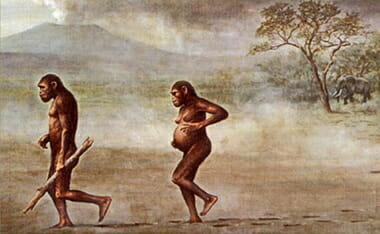
The Darwinian Ape/Man Split Just Got Older (Subjective Science)
So you can see JUST how arbitrary historical science is (Darwinian evolution in this case), scientists have just doubled the age of man, via Creation Research Society’s, Creation Matters newsletter (July/Aug 2014, Volume 19, Number 4) ~ “Your Inner Ape Just Got Older”:
Evolutionists have doubled their date of the chimp-human split from 7 million to 13 million years ago. How, and why? National Geographic announces gleefully, with a picture of a chimp playing with a child, “Ancient Human-Chimp Link Pushed Back Millions of Years.”1 Based on a study of chimp genes in Science,2 …
[….]
The new estimate is based on current mutation rates in the sample, but a lead author confessed, “We also don’t know if mutation rates varied widely in the ancient past; maybe they were different than now.”
1. Vergano, D. (2014, June 12) Ancient human-chimp link pushed back millionsof years: Older male chimps sped evolution and reset era of our last commonancestor with apes. National Geographic Daily News. Retrieved June20, 2014 from http://news.nationalgeographic.com/news/2014/06/140612-chimp-father-evolution-human-science/
2. Venn, O., I. Turner, I. Mathieson, N. de Groot, R. Bontrop, and G. McVean.2014. Nonhuman genetics. Strong male bias drives germline mutation inchimpanzees. Science 344(6189):1272–1275.
Two observations… the first one being in a form of a question:
- “Does this cause an increase in confidence towards neo-Darwinian ‘science’ showing evidence of early evolutionary man and ‘his’ origins? Or does the above cause less confidence in the origin of mankind’s history, according to an evolutionary past?”
I argue it cause less confidence. Why? — you so astutely ask. This is why: ALL the evidences and previous timelines based on a wide variety of work from archaeology, paleontology, and dating methods used to date man’s time-table… are thrown out. Why does science, so called, make such giant leaps (remember that the age of the Virgo Cluster being essentially chopped in half?)? Because the previous evidence is shoddy, and very, very subjective.
The second commentary is at least an honest admission from the researchers. I wish such honesty existed in the dating community… not the dating community as in male/female. But the dating community in the radioactive measurements. Even Forbes Magazine is catching up to the idea:
One of the first things that Physics students learn when they study radioactivity is the idea of the half-life. A half-life is the period of time in which it takes one-half of a given amount of a radioactive substance to decay. Radioactive decay happens when a radioactive substance emits a particle. It’s impossible to predict exactly when a given atom of a substance will emit a particular particle, but the decay rate itself over a long period of time is constant.
Or, at least, that’s what we thought. But if physicists at Stanford and Purdue are correct in their findings, the whole theory of constant radioactive decay rates could be thrown out the door.
The story begins, as scientific discoveries often do, randomly. Literally, in this case. The team of physicists was investigating the possibility of using radioactive decay rates to generate random numbers, since the rate is constant but the emission of individual atoms is unpredictable, it seemed like a perfect fit.
Then came the problem:
As the researchers pored through published data on specific isotopes, they found disagreement in the measured decay rates – odd for supposed physical constants.
Checking data collected at Brookhaven National Laboratory on Long Island and the Federal Physical and Technical Institute in Germany, they came across something even more surprising: long-term observation of the decay rate of silicon-32 and radium-226 seemed to show a small seasonal variation. The decay rate was ever so slightly faster in winter than in summer.
Was this fluctuation real, or was it merely a glitch in the equipment used to measure the decay, induced by the change of seasons, with the accompanying changes in temperature and humidity?
As it turns out, they probably aren’t….
As you can see in my more lengthy dealing with the matter as a supplement to a men’s group at church, the assumption of continuous decay rates at the present — observable — rates applied to the past is a HUGE assumption that is not scientific at all. Here are other “icons of evolution” decunstructed:
A great magazine for all ages: click to enlarge

Defeating Atheism with Science ~ Spike Psarris
From the video’s description:
Many atheists claim that science disproves the Bible. Despite these claims, science is actually quite consistent with Scripture.
Christians often feel unequipped to defend their faith in this area — but this need not be so. Instead, any Christian can defend his or her faith against any scientific claim from an atheist, even without knowing the details of that particular claim. Why? Because science itself disproves atheism.
Atheism, when taken to its logical conclusion, denies the fundamental assumptions and requirements of science. Therefore, if science is valid, then atheism must be false.
In this presentation, engineer and former atheist Spike Psarris will present on “Defeating Atheism with Science,” showing why this is true. Join us as we discuss how Christians can defend their faith in all areas of science. After a brief discussion of specific evidence like fossils, radiometric dating, and intelligent design, we’ll dig deeper and see how science itself disproves atheism. Understanding a few fundamental ideas about science are all that’s necessary for any Christian to be well-equipped in this area.
About the Speaker:
Spike Psarris was previously an engineer in the United States’ military space program. He entered that program as an atheist and an evolutionist. He left it as a creationist and a Christian. He now speaks on creation and Christian apologetics, equipping believers to defend their faith and glorify their Creator.
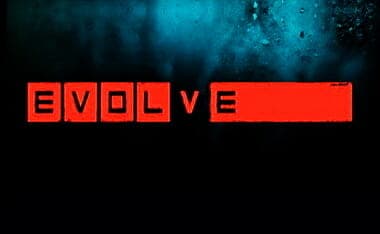
Darwinism Under the Microscope, Lessons From History (Sylvia Baker)
From video description:
http://edinburghcreationgroup.org | With the rise of genetics and molecular biology, evidence is emerging that Darwinism is not the unlimited process we once thought.
Sylvia Baker is a biology graduate of the University of Sussex and the University of London. She accepted the evolutionary theory put to her at school and at university – until the pressure of evidence forced her to rethink the whole question.

Another Failed Origin of Life Prediction for Evolutionary Naturalists
The above video is the “perhaps” of modern science, that the below refutes with more updated information.
 This is with a h-t to Fazale Rana. Fazal wrote on the matter here, “Sea Vents Closed as Life-Origin Site.” Below are some excerpts from the Science Daily article:
This is with a h-t to Fazale Rana. Fazal wrote on the matter here, “Sea Vents Closed as Life-Origin Site.” Below are some excerpts from the Science Daily article:
One of the greatest mysteries facing humans is how life originated on Earth. Scientists have determined approximately when life began (roughly 3.8 billion years ago), but there is still intense debate about exactly how life began. One possibility — that simple metabolic reactions emerged near ancient seafloor hot springs, enabling the leap from a non-living to a living world — has grown in popularity in the last two decades.
Recent research by geochemists Eoghan Reeves, Jeff Seewald, and Jill McDermott at Woods Hole Oceanographic Institution (WHOI) is the first to test a fundamental assumption of this ‘metabolism first’ hypothesis, and finds that it may not have been as easy as previously assumed. Instead, their findings could provide a focus for the search for life on other planets. The work is published in Proceedings of the National Academy of Sciences.
In 1977, scientists discovered biological communities unexpectedly living around seafloor hydrothermal vents, far from sunlight and thriving on a chemical soup rich in hydrogen, carbon dioxide, and sulfur, spewing from the geysers. Inspired by these findings, scientists later proposed that hydrothermal vents provided an ideal environment with all the ingredients needed for microbial life to emerge on early Earth. A central figure in this hypothesis is a simple sulfur-containing carbon compound called “methanethiol” — a supposed geologic precursor of the Acetyl-CoA enzyme present in many organisms, including humans. Scientists suspected methanethiol could have been the “starter dough” from which all life emerged.
The question Reeves and his colleagues set out to test was whether methanethiol — a critical precursor of life — could form at modern day vent sites by purely chemical means without the involvement of life. Could methanethiol be the bridge between a chemical, non-living world and the first microbial life on the planet?
Carbon dioxide, hydrogen and sulfide are the common ingredients present in hydrothermal black smoker fluids. “The thought was that making methanethiol from these basic ingredients at seafloor hydrothermal vents should therefore have been an easy process,” adds Reeves.
The theory was appealing, and solved many of the basic problems with existing ideas that life may have been carried to Earth on a comet or asteroid….
[….]
“What we essentially found in our survey is that we don’t think methanethiol is forming by purely chemical means without the involvement of life. This might be disappointing news for anyone assuming an easy start for hydrothermal proto-metabolism,” says Reeves. “However, our finding that methanethiol may be readily forming as a breakdown product of microbial life provides further indication that life is present and widespread below the seafloor and is very exciting.”
The researchers believe this new understanding could change how we think about searching for life on other planets.
Uncommon Descent notes the following after quoting the above Science Daily article:
As noted earlier, origin of life is a problem in the origin of huge amount of information and looking for a way it happened due to some fluke has always been a waste of time.
Software engineer Arminius Mignea’s specifications for a simplest self-replicator in Engineering and the Ultimate would be a useful read on that score. It advances the discussion by setting out what origin of life (by human or other hands) models should look like, to merit consideration.
Too often, people play rhetorical games that sound like: “Life happened, so my ‘stink world’ is plausible” or “The prevailing consensus says Stink World is plausible, therefore life.”
It’s a form of homage to philosophical materialism, not science really, and it suck in lots of well-meaning people. They don’t realize that when we are asked to accept an inherently implausible idea because it is materialist, we are invited to put materialism above every other consideration, including logic, reason, and evidence.


